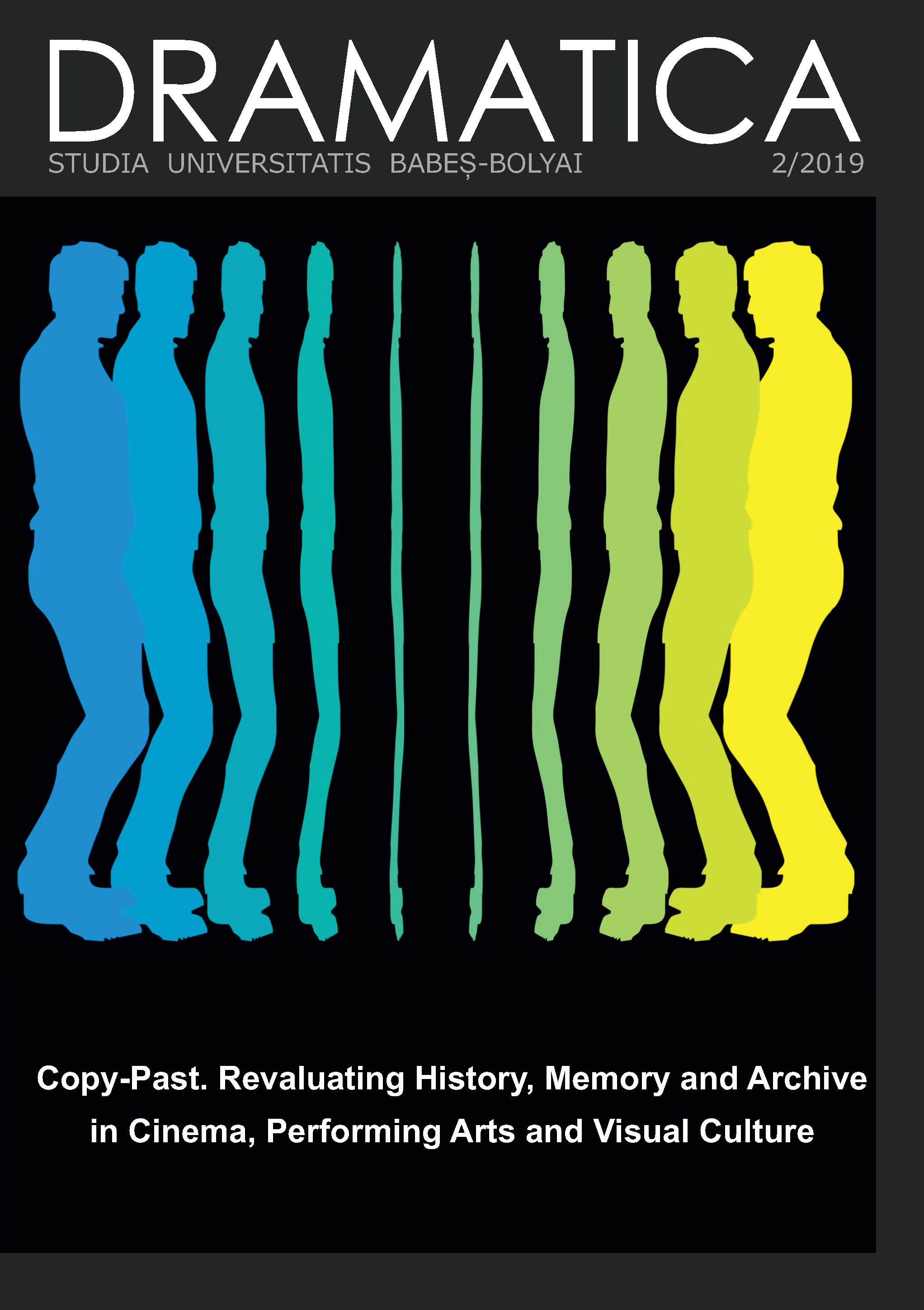“Teatrul” Journal, between Norms and Emancipation. The Years of the “Thaw” and Those of the New “Freeze”
DOI:
https://doi.org/10.24193/subbdrama.2019.2.03Keywords:
Theatre, Theatre criticism, Politics, HistoryAbstract
Teatrul Journal, dedicated to both professionals, and devoted spectators, appeared in 1956 following the so-called “thaw”, which took place in the part of Europe controlled by the Soviet regime after Nikita Khrushchev’s secret report at the 20th Congress of the Communist Party of the Soviet Union. As we know, this “secret report” highlighted the horrors which took place during the decades dominated by Stalin, incriminated his “cult of personality”, and promised a certain openness in the fields of science, culture and arts towards communicating with the West, as well as loosening the chains of censorship. This phenomenon was felt, in a more or less discrete way, at all levels of the Romanian society; and for the theatre domain, the sign of this change of politics was the launch of the Teatrul journal, under the patronage of the writer, playwright and aesthetician Camil Petrescu[1]. This paper (which is part of a wider research dedicated to theatre criticism discourses in the communist period) looks at the relation between party orders and the editorial policy taken on by or imposed on the journal from its birth (April 1956) to the new „freeze” wave (1958-1960).
[1]. Camil Petrescu (1894-1957) was a novelist, literary theory author and playwright. He was the Manager of the National Theatre of Bucharest between 1938-1939 and a member of Romanian Academy form 1947.
References
BĂRBUȚĂ, Margareta. “Scrisoare către un director de teatru.” Teatrul, no. 1 (1956).
———. “Spiritul de partid și eficiența mesajului.” Studia UBB Dramatica, no. 7 (1958).
BUMBEȘTI, Victor. “Remedii.” Teatrul, no. 2 (1957).
CĂLIN, Vera. “Anxietate și neant. Pe marginea unor piese ale Apusului.” Teatrul, no. 6 (1958).
“Consfătuirea oamenilor de teatru.” Teatrul, no. 6 (1958).
“Cuvânt de Început [Foreword].” Teatrul, no. 1 (1956).
FINTEȘTEANU, Ion. “Deziderate.” Teatrul, no. 2 (1957).
GUS, M. “Arta și democrația.” Teatrul, no. 5 (1958).
IOSIF, Mira. “De ce dibuiri și echivocuri? Întrebări pe marginea unei anchete a revistei Tribuna.” Teatrul, no. 8 (1958).
LUCA, Eugen. “Pretextul actualității.” Teatrul, no. 5 (1958).
LUPAN, Radu. “Antiteatrul lui Eugen Ionesco.” Teatrul, no. 9 (1958).
NOVAC, Ana. Frumoasele zile ale tinereții mele. Translated by Anca-Domnica Ilea. Cluj-Napoca: Dacia, 2014.
PETRESCU, Camil. “Despre unele probleme. Eficiență și măiestrie artistică.” Teatrul, no. 2 (1956).
———. “Despre unele probleme. Funcția primordială a regizorului în teatru (ca și în film).” Teatrul, no. 1 (1957).
RUNCAN, Miruna. “Arguments for a Historical Examination of the Discourse of Theatre and Film Criticism.” Studia UBB Dramatica LXII, no. 2 (2017): 9–22. https://doi.org/10.24193/subbdrama.2017.2.01.
———. Teatralizarea și reteatralizarea în România. 1920-1960. 2nd editio. București: Liternet Publishing House, 2013.
———. “The Coronation of the Accompanying Comrade. Sică Alexandrescu – A Case Study.” Studia UBB Dramatica LXII, no. 2 (2017): 87–114.
SADOVA, Marietta. “În așteptare.” Teatrul, no. 2 (1957).
SELEJAN, Ana. Literatura în totalitarism 1952-1953. Sibiu: Thausib, 1995.
STAICU, Trixy. “Paris 58 și cavalerii iraționalismului.” Teatrul, no. 7 (1958).
STURDZA-BULANDRA, Lucia. “Un bogat și valoros bilanț.” Teatrul, no. 10 (1957).
TAUBMAN, William. Khrushchev: The Man and His Era. London: Free Press, 2004.
TORNEA, Florin. “Responsabilitatea dramaturgului.” Teatrul, no. 4 (1958).
———. “Valoarea umană și evocarea revoluționară.” Teatrul, no. 5 (1958).
VASILE, Cristian. Viața intelectuală și artistică în primul deceniu al regimului Ceaușescu. 1965-1975. București: Humanitas, 2015.
Downloads
Published
How to Cite
Issue
Section
License
Copyright (c) 2019 Studia Universitatis Babeș-Bolyai Dramatica

This work is licensed under a Creative Commons Attribution-NonCommercial-NoDerivatives 4.0 International License.


